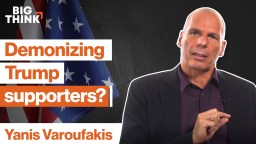Nicholas A. Christakis is a physician, sociologist, and director of the Human Nature Lab at Yale University, where he is the Sterling Professor of Social and Natural Science. His most[…]
Disagreements should not equal censorship.
▸
3 min
—
with
Sign up for Big Think on Substack
The most surprising and impactful new stories delivered to your inbox every week, for free.





